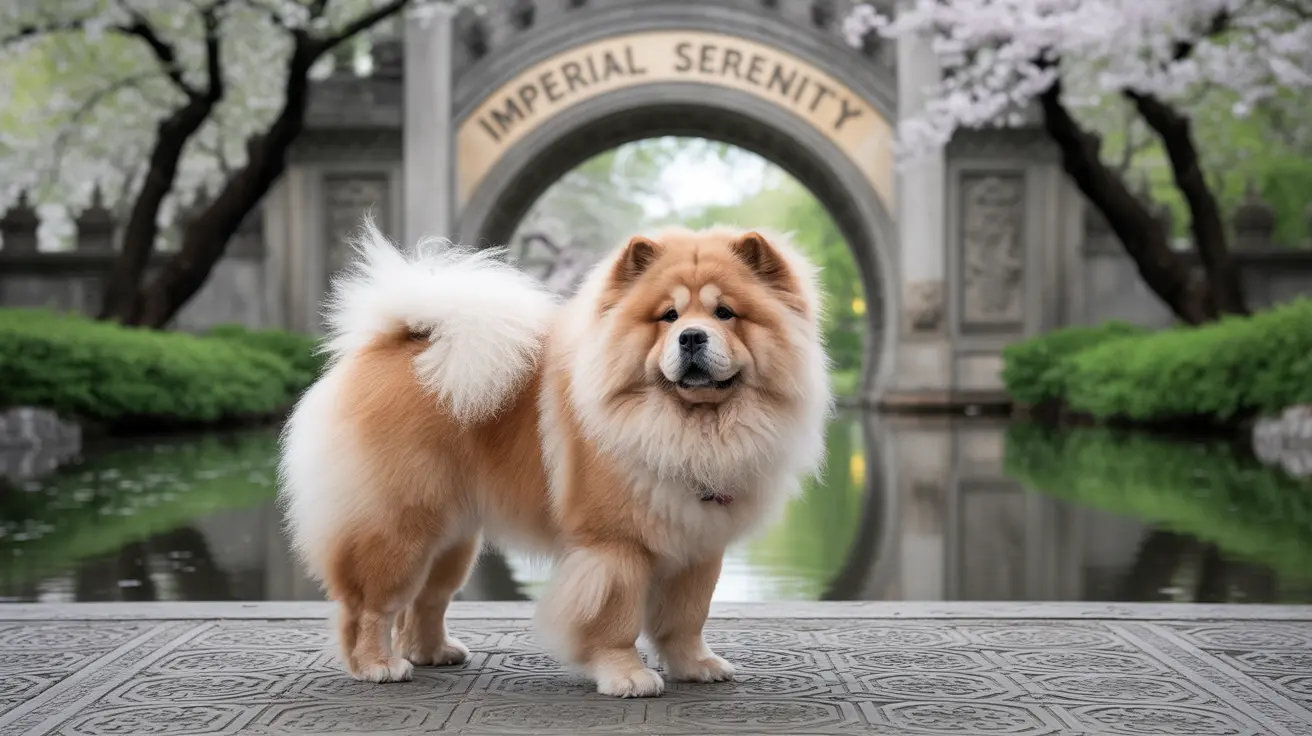China's rich canine heritage spans thousands of years, producing some of the world's most distinctive and cherished dog breeds. From the regal Pekingese to the lion-like Chow Chow, Chinese dogs have captivated pet lovers worldwide with their unique characteristics, fascinating histories, and endearing personalities.
In this comprehensive guide, we'll explore the most notable Chinese dog breeds, their historical significance, and what makes them such special companions in modern homes. Whether you're considering adding one of these ancient breeds to your family or simply interested in their remarkable heritage, you'll discover what makes these dogs truly exceptional.
The Imperial Legacy of Chinese Dogs
Chinese dog breeds have deep roots in imperial history, with many breeds developed specifically for nobility and royal courts. The Pekingese, for instance, was so highly valued that stealing one from the imperial palace was punishable by death. These dogs weren't just pets; they were living symbols of status and refinement in ancient Chinese society.
Archaeological evidence, including pottery and sculptures dating back to the Han Dynasty (206 B.C.), shows that many of today's Chinese breeds have remained remarkably similar to their ancient ancestors, testament to their enduring characteristics and careful breeding practices.
Most Notable Chinese Dog Breeds
The Distinctive Chow Chow
Perhaps the most recognizable of all Chinese dogs, the Chow Chow stands out with its lion-like mane and unique blue-black tongue. These ancient dogs served multiple purposes throughout history, from hunting and guarding to pulling sleds. Today, they're known for their independent nature and strong loyalty to their families.
The Elegant Pekingese
Originally bred as companion dogs for Chinese royalty, Pekingese dogs carry themselves with a distinctive dignity that reflects their noble heritage. These small but confident dogs are known for their flat faces, luxurious coats, and devoted personalities.
The Unique Chinese Shar-Pei
Famous for their wrinkled skin and blue-black tongue (shared only with the Chow Chow), Shar-Peis were originally developed as versatile working dogs. Their name means "sand skin" in Chinese, referring to their rough, distinctive coat texture.
Care and Training Considerations
Chinese dog breeds often require specialized care to maintain their distinctive features and ensure their health. Regular grooming is essential for breeds like the Chow Chow and Pekingese, while the Chinese Crested needs particular attention to skin care and dental hygiene.
Training these independent-minded breeds requires patience and consistency. Their strong personalities and historical roles as companion or working dogs influence their learning style and relationship with their owners.
Health and Longevity
While generally hardy, Chinese breeds can be prone to specific health issues. Regular veterinary check-ups and genetic screening are important for preventing or managing conditions common to these breeds. Many Chinese dogs are known for their longevity when properly cared for, with some breeds living well into their teens.
Frequently Asked Questions
What are some of the most popular Chinese dog breeds known for their historical significance and unique characteristics?
The most popular Chinese dog breeds include the Chow Chow, Pekingese, Shar-Pei, and Chinese Crested. Each has distinctive features: the Chow Chow with its lion-like mane and blue tongue, the Pekingese with its royal heritage, and the Shar-Pei with its characteristic wrinkles.
How do I care for a Chinese Crested dog to prevent dental issues and other health problems?
Chinese Crested dogs require regular dental cleaning and professional check-ups. Daily tooth brushing, regular veterinary dental cleanings, and appropriate chew toys are essential. Additionally, their sensitive skin needs protection from sun exposure and regular moisturizing.
What makes the Chow Chow and Chinese Shar-Pei so distinctive, and how do their temperaments compare?
Both breeds share the unique blue-black tongue and are known for their independent nature. Chow Chows tend to be more aloof and dignified, while Shar-Peis are typically more adaptable but equally loyal. Both breeds make excellent guardians and form strong bonds with their families.
How should I train a Chinese breed like the Pekingese, given its independent nature and historical role as a companion animal?
Training should focus on positive reinforcement and consistency. Start socialization early, keep training sessions short, and respect their independent nature. Use treats and praise effectively, and avoid harsh corrections which can damage their trust.
What are some common health issues in Chinese dog breeds, and how can I ensure my pet receives proper health screenings?
Common health issues include hip dysplasia, eye problems, and skin conditions. Work with a reputable veterinarian to establish a screening schedule that includes regular check-ups, genetic testing when appropriate, and breed-specific health monitoring. Keep detailed health records and stay current with preventative care.






